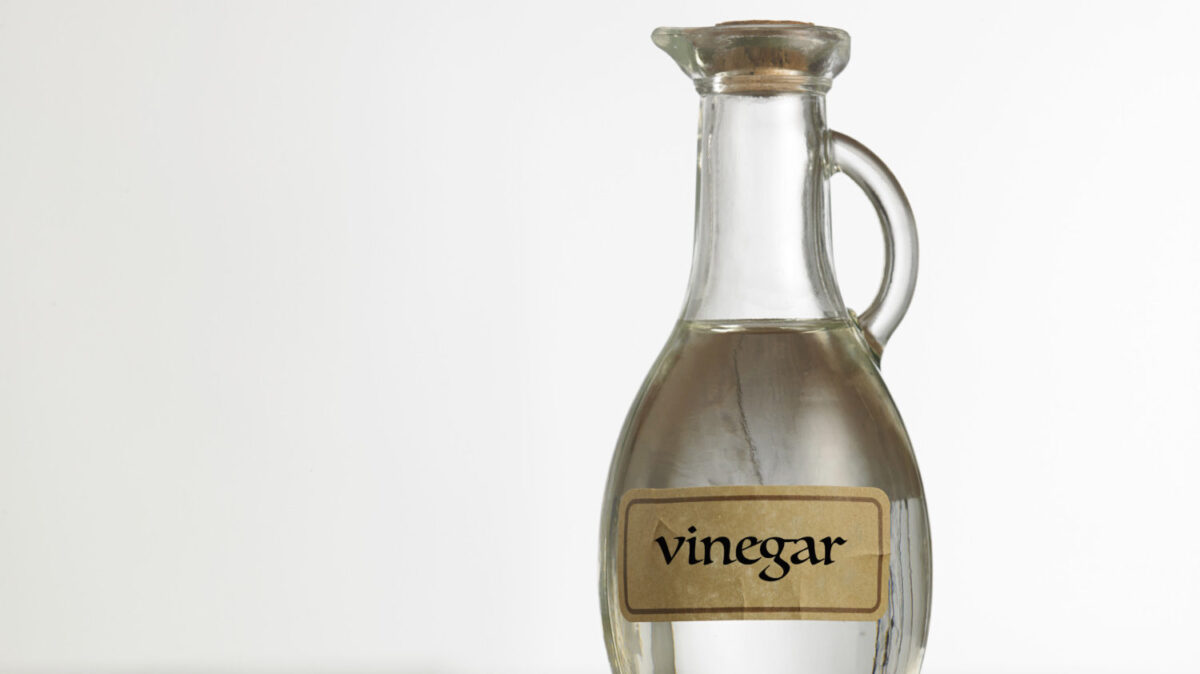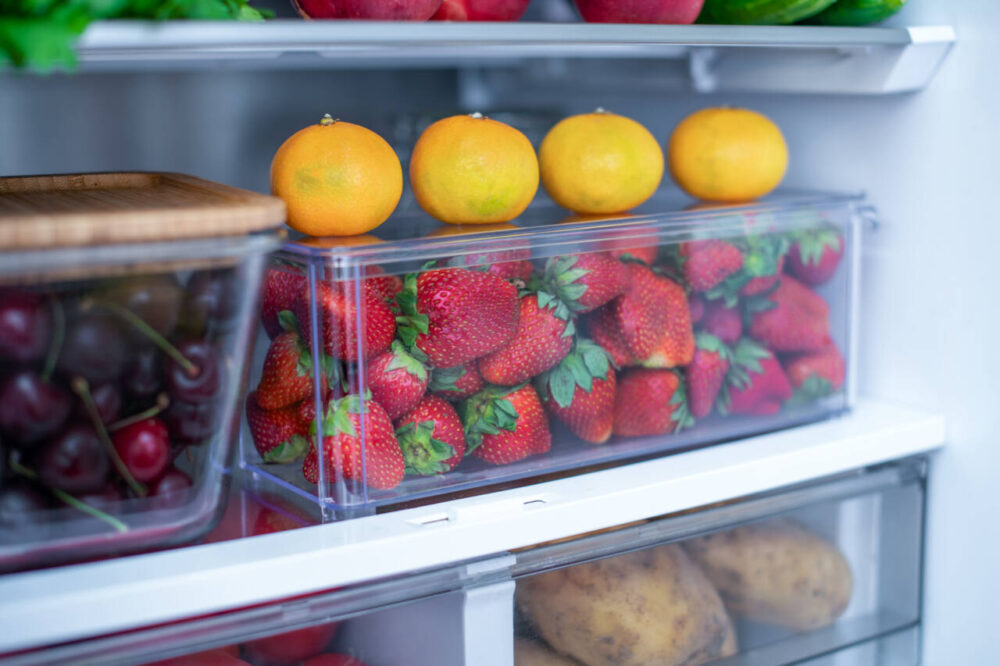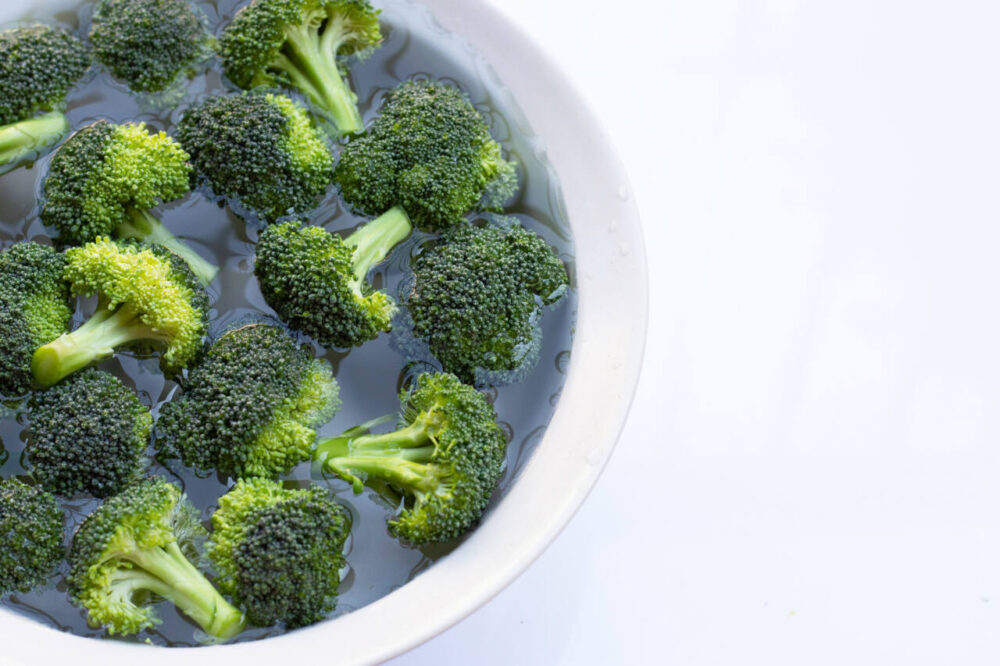No doubt you’ve heard that you should wash your fresh fruit and vegetables before eating them. After all, they can be full of residue like dirt, pesticides and even bugs. If you want to eliminate as many contaminants as possible, you can wash your produce with vinegar.
Using vinegar as a spray or soak for fruits and vegetables is a safe, inexpensive and effective way to get rid of natural and chemical residues — and you probably already have it in your pantry. Read on to discover why vinegar is effective and which type of vinegar is best to use for cleaning produce.
MORE: 5 fruits you shouldn’t refrigerate
Why Do You Need To Wash Fruit And Vegetables?
Partly, you wash your produce to rinse off the pesticides that farmers use to prevent bugs from eating their crops. According to the Environmental Working Group’s 2023 report, up to 75% of non-organic produce “contains residues of potentially harmful pesticides.” There are many potential negative effects and health issues associated with pesticide exposure, including cancer.
Another concern is the presence of bacteria on produce that can cause illness.
“Produce has many opportunities in which it can be contaminated, through the transportation process, from feces from the ground, or during food preparation,” Dr. Janette Nesheiwat told Readers Digest. “Sometimes dirty produce can result in foodborne sickness.” According to the FDA, there are nearly 48 million cases of people getting sick from bacteria-contaminated foods (often fruits and vegetables) every year.
Toss in the possibility of insects that may have hitched a ride on your berries, and this picture gets even clearer. You need to wash your produce!

Why Use Vinegar To Wash Your Produce?
You may already be cleaning your countertops with a vinegar cleaner, and the same properties that make vinegar a safe and effective all-purpose cleaner also enable vinegar to kill contaminates on your strawberries. Why? Because vinegar contains acetic acid, which has the ability to destroy most bacteria, viruses and pesticides.
Vinegar also kills the spores that cause mold, suppressing its growth. By keeping mold spores at bay, vinegar can prolong the life of your produce.
MORE: This simple step will keep your bagged salad fresher, longer
How To Make A Vinegar Solution To Wash Fruit And Veggies
To create your vinegar fruit and veggie wash, combine three parts water with one part white vinegar in a bowl or spray bottle.
White vinegar is the best type of vinegar to use for cleaning produce. This type of vinegar tends to be the most acidic (between 4 to 7 percent acetic acid), making it slightly more effective than cider and wine vinegars (which are between 5 to 6 percent acetic acid).

When To Wash Fruit And Veggies With A Vinegar Solution
If you’ve just returned from a shopping trip with a bag full of fruit and vegetables, you may be tempted to stash it all in the fridge and worry about washing it later. Instead, take the time to wash your produce before putting it away.
Cassandra Loftlin, food editor and chef of Ark Republic, told Reader’s Digest that washing produce the moment you get home is the safest option.
“Ideally, you should wash your fruit as soon as you receive it, but definitely before storing it in your refrigerator or in a bowl on your counter,” she said. “Dirty produce can easily contaminate other foods.”
One caveat here is that you also need to dry fruit and vegetables completely before putting them in the fridge. Excess moisture can create an atmosphere for bacteria to grow. If you’ve tried the Mason jar trick for storing strawberries, you probably know that fruit has to be dry before you store it. After all, everyone wants strawberries that stay fresher, longer.

How To Wash Fruit With A Vinegar Solution
For fruit like apples, peaches or plums, spritz the outside of the fruit with your spray bottle containing the vinegar cleaning solution. Let the fruit sit for five minutes and then rinse with cold water. If you don’t rinse properly, you may end up with a lingering vinegar smell. This won’t hurt you, but vinegar doesn’t exactly enhance the taste of fruit like it does with potato chips! A good rinse with cold water should do the trick, though.
Oranges and grapefruits should get this same cleaning treatment, because contaminants can still enter the fruit. “Cutting into an unwashed orange can push bacteria into the fruit and spread the bacteria onto the flesh,” Loftlin advised.
On that same note, be sure to also wash your avocados, stone fruits and melons well, too, to avoid contamination with listeria when you cut into them.
MORE: Crisper drawer: What to store in this part of your fridge
For strawberries, cherries or grapes, drop them in a bowl with your vinegar solution and let them soak for three minutes. Strain them in a colander and rinse with cold water. Lay the small fruits out on a clean dish cloth or paper towels and allow them to dry thoroughly before storing.
Once your produce is dry, refrigerate it within two hours.

How To Wash Vegetables With A Vinegar Solution
You can use the same vinegar solution to clean vegetables.
For veggies like eggplant, zucchini and squash, spritz them as you would the large fruits and follow the same procedure. For smaller veggies and ones with nooks and crannies like broccoli, soak in a bowl with the vinegar solution, then rinse.
Again, make sure you dry your produce thoroughly before placing it in the fridge. With leafy greens like lettuce, soak them, rinse them and dry them with a salad spinner.
If you happen to be out of vinegar, don’t reach for soap, bleach, sanitizer, alcohol or chemical disinfectant. Just rinse your produce well with cold water.
How to wash fruit with vinegar originally appeared on Simplemost.com


